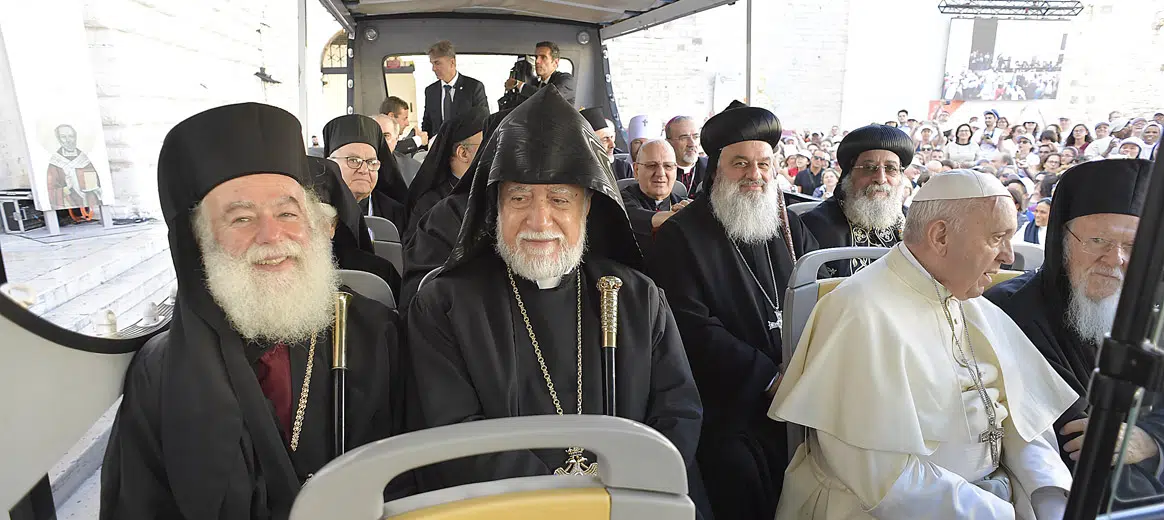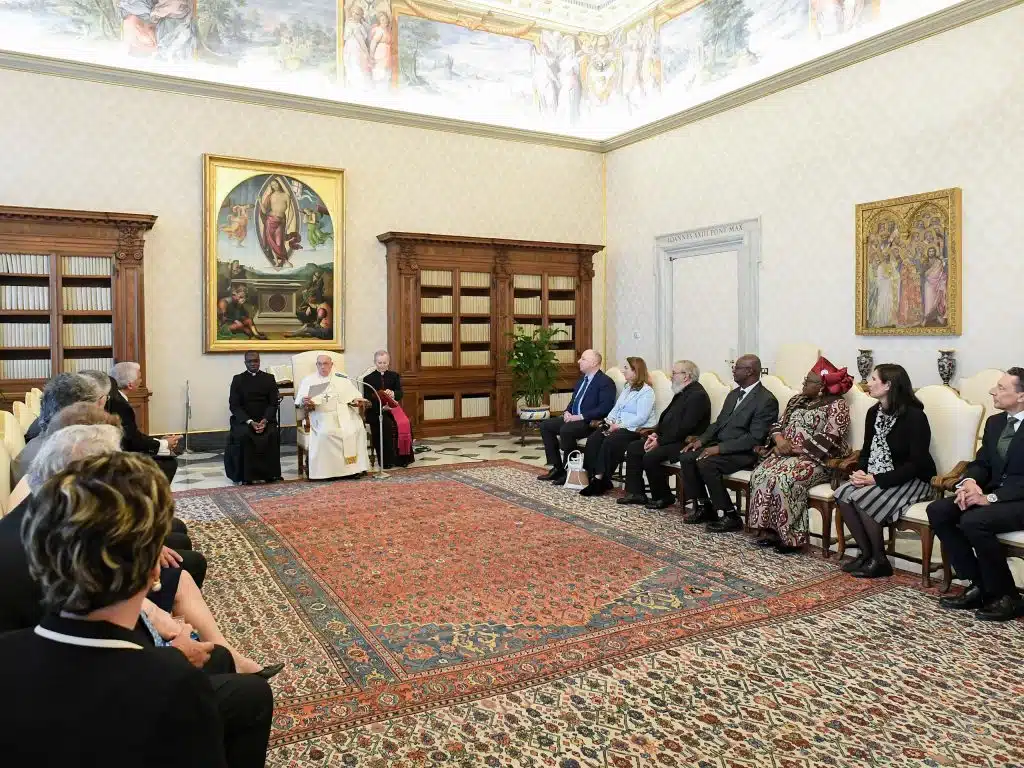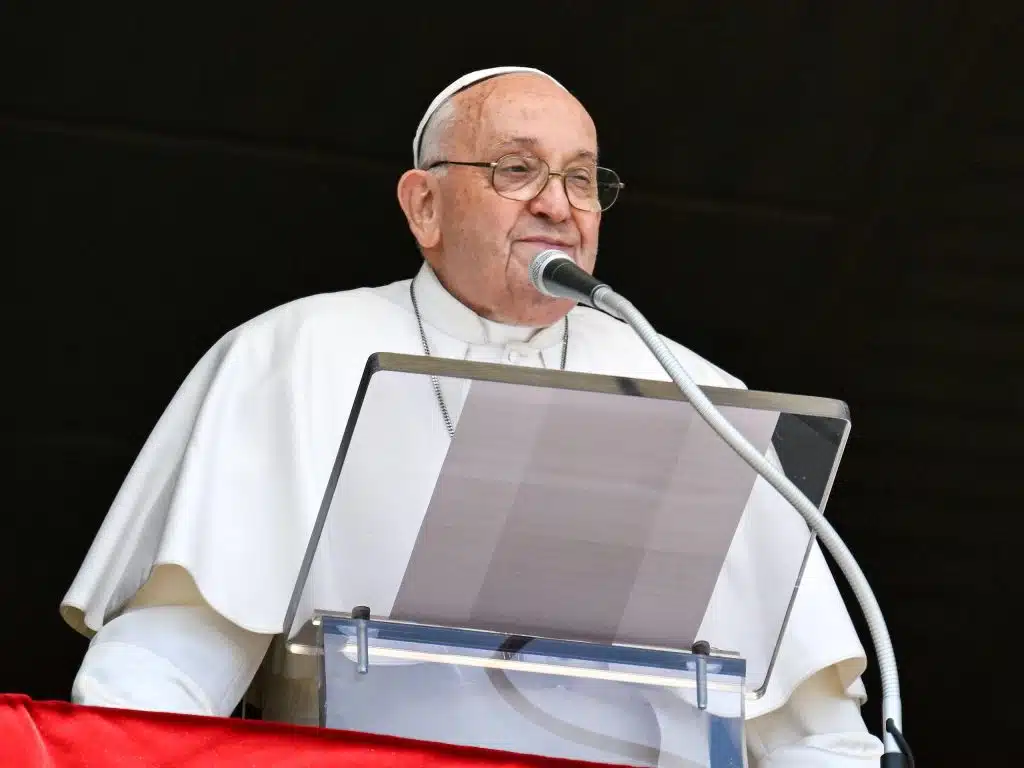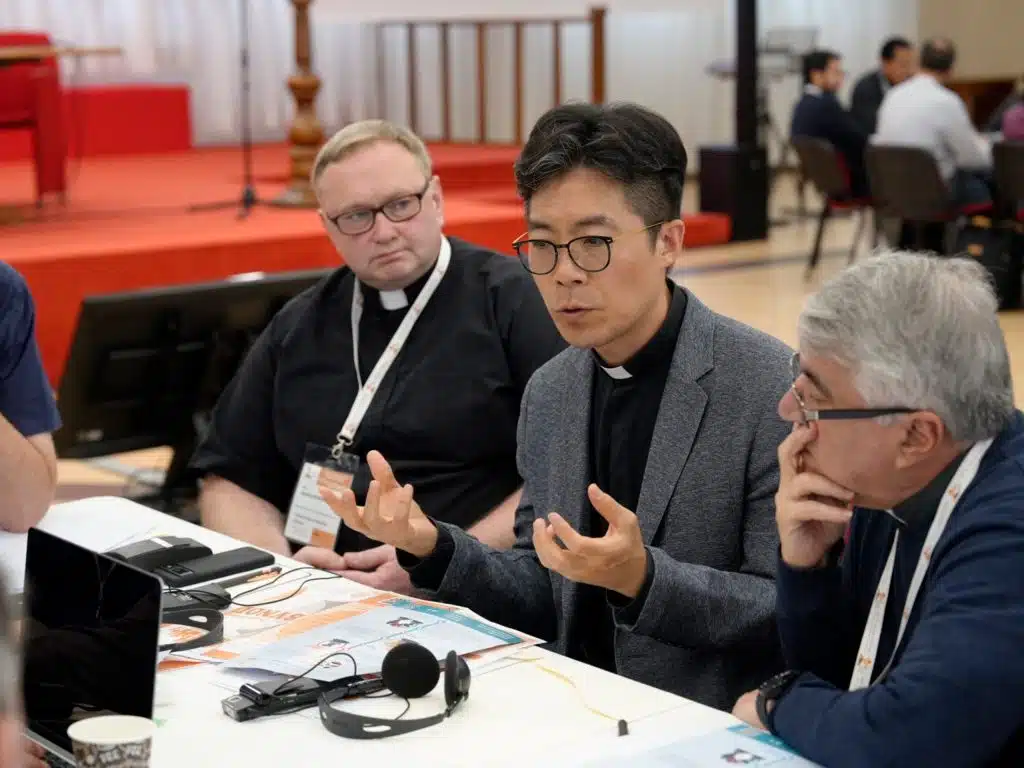VATICAN CITY — As war continues to threaten the land of Jesus’ birth and to undermine the existence of Christian communities there, the international community must learn from the errors of the past and do more to bring lasting peace to the Middle East, Pope Francis said.
“Do not forget the previous century; do not forget the lessons of Hiroshima and Nagasaki; do not let the land of the East, where the Word of peace arose, be transformed into a dark expanse of silence,” the pope said after a private meeting with the heads of Christian churches and communities in the Middle East.
Pope Francis traveled July 7 to the southern Italian Adriatic port city of Bari to host a day of reflection and ecumenical prayer for peace in the Middle East.
Arriving by helicopter in the early morning, the pope stood in front of the Basilica of St. Nicholas and greeted the patriarchs and other representatives of Christian churches.
Among them was Ecumenical Patriarch Bartholomew of Constantinople, Coptic Orthodox Pope Tawadros II of Alexandria and Greek Orthodox Patriarch Theodoros II of Alexandria and all Africa.
Metropolitan Hilarion of Volokolamsk, head of external relations for the Russian Orthodox Church, represented Russian Orthodox Patriarch Kirill of Moscow.
Flanked by the church leaders, the pope entered the basilica and walked down to the crypt, where he bowed deeply before the relics of St. Nicholas, who is venerated by both Catholics and Orthodox.
After remaining several minutes in prayer and lighting a candle on the altar, the pope and church leaders boarded a bus that took them to the seaside site of the ecumenical prayer service.
Thousands of men, women and children cheered and waved as the group made its way to the stage overlooking the Adriatic Sea. Behind the pope’s chair was a large statue of Christ crucified with the words “May peace be upon you” etched above it.
The pope began the service by welcoming the patriarchs and Christian leaders and thanking them for joining him in prayer for the Middle East, which he described as a source of “ever fresh streams of spirituality and monasticism.”
However, he added, the light of the region has been dimmed by the “dark clouds of war, violence and destruction,” which threaten to cast out Christians “amid the complicit silence of many.”
“There is also the danger that the presence of our brothers and sisters in the faith will disappear, disfiguring the very face of the region. For a Middle East without Christians would not be the Middle East,” the pope said.
While asking “the Lord of heaven for that peace which the powerful of our world have not yet been able to find,” the pope also prayed for peace in Jerusalem, “the holy city beloved of God and wounded by men for which the Lord continues to weep.”
After the prayer service, the pope and the Christian leaders returned to the basilica for a private meeting that lasted over two hours.
In a speech delivered to the faithful outside the basilica, the pope said members of the group were encouraged by their dialogue, which “was a sign that encounter and unity are always found without fear of differences.”
Peace, he said, can only be cultivated and nurtured through listening and engaging in dialogue and not by “truces guaranteed by walls and tests of strength.”
Pope Francis denounced arms dealers who have taken advantage of the conflicts by selling weaponry and called for an end to the “personal profit of a few on the skin of many.”
“Enough with the occupation of lands that tear people apart. Enough with the prevalence of half-truths over people’s hopes. Enough with using the Middle East for profits that are foreign to the Middle East,” he said.
Before ending the meeting with the release of two white doves, Pope Francis once again called for peace in Jerusalem whose “status quo demands to be respected.”
The Vatican supports a “two-state solution” for the Holy Land with independence, recognition and secure borders for both Israel and Palestine.
Despite warnings from Middle Eastern and European leaders, President Donald Trump went ahead with his decision to recognize Jerusalem as the capital of Israel, overturning the United States’ long-standing policy and further complicating peace negotiations.
“Only a negotiated solution between Israelis and Palestinians, firmly wanted and desired by the community of nations, can bring a stable and lasting peace and guarantee the co-existence of two states for two peoples,” Pope Francis said.



